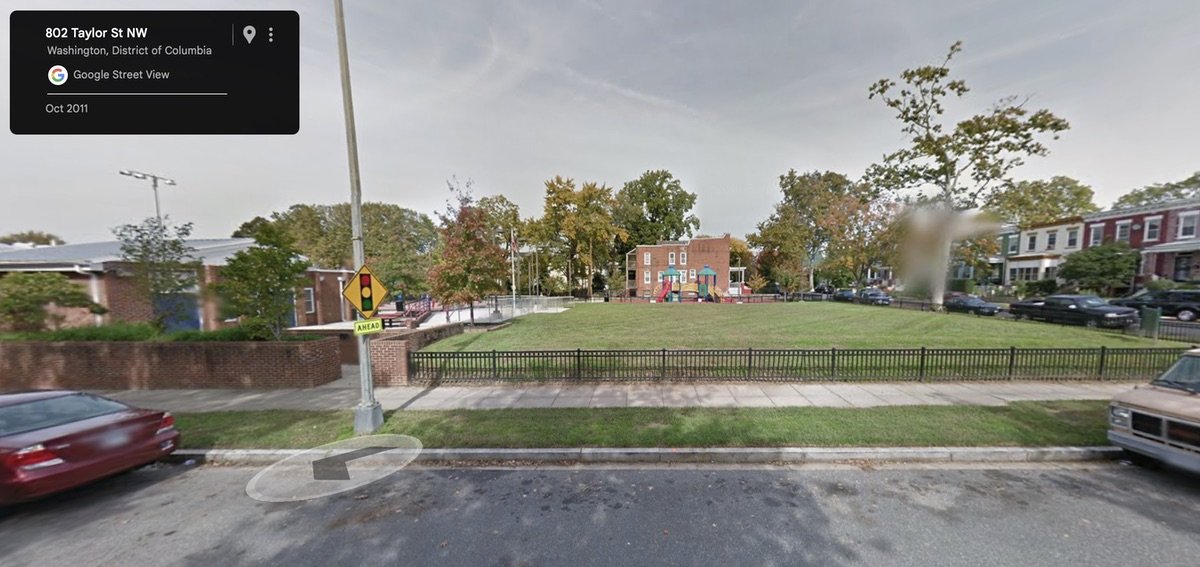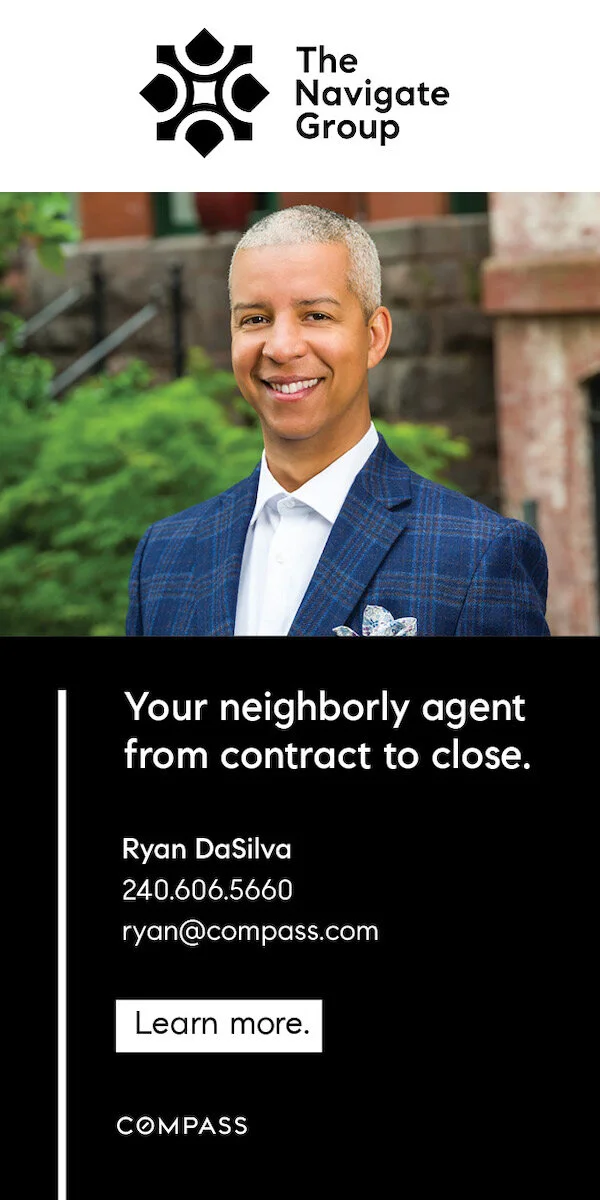A conversation with Robert White, candidate for At-Large Council
/I met Robert White over the weekend at Culture Coffee, a small but very popular coffee shop at 709 Kennedy Street NW. A candidate for one of the At-Large Councilmember seats, Robert arrived dressed casually in jeans and a button-down, with no entourage.
Robert lives with his wife Christy, and their dog Roscoe, in Brightwood Park where he’s the president of the neighborhood association and has lived for five years, though he’s lived in every quadrant of the city. Robert was the Director of Community Outreach for DC Attorney General Karl Racine before he resigned to campaign for the Councilmember position. He plans to work on the Council full time if elected (though he’d love to be asked to teach a class), but has no plans for a second job.
While Robert provided written responses to questions I provided ahead of time (see the those answers in a different article), he agreed to meet with me in person. We spent a little over an hour talking, and the content of that conversation is below, edited down a bit. I found Robert White to be incredibly easy to talk with, detailed in his knowledge and passionate about being an advocate for DC residents across the city, particularly on the issues of education and economic development and disparity.
Read Robert White's campaign positions on several key topics >
Drew/Petworth News: Ward 4 residents are looking at this At-Large race and thinking, “What is this candidate going to do for me in Ward 4, and for the city as a whole, if he gets elected to Council?”
Robert White: It’s interesting how central the citywide issues are, particularly the issues of lower income neighborhoods, east of the river. Those issues are still very central here. The issues I advocate are on education, job training and housing affordability. Those are incredibly important issues here.
There was an article recently talking about a baby boom in Petworth and Brightwood Park, and my wife is 6 months pregnant, and a lot of our neighborhood friends are pregnant. And we’re looking around and saying alright, schools aren't terrible but they aren’t great. And we don’t have a stand-alone middle school. It’s a very economically and racially diverse area of the city and we still have a lot of people who are left out of a thriving economy. We need job training and job opportunity programs, and housing affordability.
I was on your website and saw a house two blocks from me listed for over $700,000, and I was flabbergasted. These issues are central to us just as it is for people in every other part of the city, but particularly east of the river.
These issues are very central for me because they are my focus citywide, because I am very much focused on the people being left behind in our booming economy and also central to me as a resident and expectant parent here in Brightwood Park. So they translate very easily to this neighborhood. Economic development, driving business investment, especially small business, to areas of the city that haven’t seen it develop organically and tax incentive programs targeted for neighborhoods that are having difficulty luring businesses.
The example I use almost every day is Culture Coffee. As we develop our policies for small businesses and on employee benefits, when we think about businesses like Culture Coffee — my question is always, “how is this going to affect Culture Coffee?” And if I look at it through this lens, I’m always going to have a way to protect small businesses.
It’s grounding yourself into the reality of real world impact.
Yes, exactly.
One of the things that’s been on my mind, and it’s a hard theme to cover continually on a news blog unless you make it your focus most of the time, is gentrification, affordable housing and ensuring equal opportunity. So define gentrification for me, how do you understand it to mean?
Gentrification has a technical definition, which is people with a higher income moving into a lower income community and raising the cost of living. The reality is very far from the technical definition and much more nuanced. For instance, even though I’m a native Washingtonian from a low-income black family, in this exact neck of the woods, I’m still a gentrifier.
The other piece you can’t forget is that there’s something beautiful happening in DC. Unlike 20 years ago when people were seeing DC as a stop on the way somewhere else, people are finding they love DC and are deciding to stay here and raise families here. And that’s a wonderful thing, and I wouldn’t want to see us reverse that at all.
The question is, if we’re going to be realistic, and this is where I get really frustrated with politics and campaigning, if we’re going to address the issue there’s no way to suppress the cost of housing. So what we’re challenged to do is allow more people to enter the housing market as homeowners or renters. So many people move to a neighborhood and say “we don’t like the neighborhood gentrifying,” even though they’re part of the gentrification process. Gentrification, even in the technical definition, is not a problem if it doesn’t push people out. So what we have to do is ensure we’re not pushing people out. That’s really the basis of my entire campaign.
Let’s talk about the role of government, of city council, on how to deal with the rising cost of housing, the rising cost of living, and those who are getting economically pushed away. How do you ensure they have the opportunity, and that affordable housing is truly affordable and stays in the mix?
The government has to act affirmatively. You have to make sure that people who have less means, whether it’s seniors or those who have less income, are not getting pushed out of their homes because tax rates have gone up. We have to readdress our tax rates so we don’t push people out of their own neighborhoods.
We have to get serious with developers and let them know that DC law requires them to build affordable housing and you can’t summarily get a pass on every project. There must be an understanding that when you’re building in DC, there is going to be affordable housing included. If developers understand the rules of the game, they’ll play by those rules. But right now, those rules say you’ll easily get a pass.
We have to — and this is the biggest thing we have to do — is protect the affordable housing.
Robert gave an example of an apartment building around the corner from where we sat that wasn’t being maintained, and when the city condemned it and took the residents to a shelter, the appraiser showed up to prepare to sell the building.
The people who didn’t maintain the building were ready to flip it to a higher-priced condo. That’s where city government has to step in, to protect people. I appreciate the role of business and development, and I expect them to play their role, which is to make a profit. And that’s fair. But it only works if the government plays its role, which is to protect residents, building affordable housing and directing the way our city grows.
Do you think the Council has a voice on the zoning regulations?
The Council has a voice everywhere. The oversight role is one that should not be undervalued. The buck should stop at the Council. We have to understand how we’re defining the role of our councilmembers. Yes, their job is as a legislator, but also as an advocate and protector of your residents. Go out and affirmatively educate people and take the lead in corralling resources. There are resources out there to develop programs and help educate residents so we can intervene before the problem happens.
Let’s talk about pop-ups and the availability of housing.
Robert, his wife Christy and their dog, Roscoe
Strictly speaking of density, either we want people to be able to afford to live in DC, or we don’t. And the only way to push down the cost of housing is to increase the density. How ever we can increase density without destroying communities, we’ve got to do it.
I don’t want to see a pop-up on my block, I’ll be honest with you. But I also don’t want to see people priced out of the city. So between the two, I would support pop-ups.
But what I would do to try to prevent that on the Council is first, encourage other uses like the recent zoning changes for accessory dwelling units, basement units — I want to see more of that. But I also want to see work on increasing density in places where it makes sense. Most specifically, our major corridors that are very under-performing now, like Georgia Avenue, like MLK, like Rhode Island Avenue.
I’d like to see density added to these one-story retail places, address affordable housing and diversify those commercial corridors at the same time.
You talked about there being “two Washingtons” in your answers to my previously submitted questions. Can you talk more about that?
The city is clearly thriving, but it is not difficult to see that there are a lot of people who are not thriving. And those are generally the same people who have not been thriving for a long time. It’s unfair that their hometown is succeeding in a great way, but they’re not succeeding. So two DCs look like vast income disparity, vast educational disparities, the same neighbors that struggle with schools and school performance are still struggling.
We have the highest percentage of college degree holders in the nation, and we also have a very significant number of returning citizens.
Frankly, this city is still racially stratified, with Wards 5, 7 and 8 in particular, are still predominantly black, and many parts of the city, like Wards 2 and 3, are predominately white. And most other wards fall somewhere on that spectrum. So there are two DCs. There are people who are not seeing or feeling the emergent economy here, and frankly, that’s not necessary. It won’t happen accidentally. You won’t ever accidentally protect people.
We have to use our increased resources, if we are bringing in more tax revenue, to commit to use a lot of those resources to help the people who are falling behind, to improve schools, to create job training and career training programs that are going to help people participate in the market, and affordable home ownership programs.
The fact that the Home Purchase Assistance Program is down to $40,000 (used to be as high as $80,000) is a great example of the problem. It’s money from the DC government to get the money needed to help pay for a down payment. HPAP meant if you made enough to pay a mortgage, the down payment would not stop you from owning a home. Our problem now is that people can’t get into the housing market. HPAP hasn’t kept up, and must correspond with home prices.
What makes you a strong candidate and therefore a better Councilmember than Vincent Orange or David Garber?
Let me start with David, he’s a fine guy but he’s not yet qualified to hold the seat, and will not be a viable candidate. I’ve spent most of my career working on policies specific to DC, in addition to civic engagement. I understand the city and everything from cultural to policy; I don’t know that David has had a full-time job. I don’t know that residents are going to be ready to bet that one of 13 council seats is the appropriate place for someone to cut their teeth.
Vincent Orange asked me at a debate yesterday why I am running against him. And I said, “that’s where the need is.” When I look at and talk about two DCs, I’m talking about a city where he’s been on the Council for most of the time that it’s become divided, and I’m watching the people who were behind fall further behind. And I’m watching programs like adult education and job training and oversight of DCRA, all under his committee’s jurisdiction, and it is hurting because he has not been actively advocating or protecting people. So I am not comfortable seeing him on the council for another four years. His time has come and gone. It is simply time for new leadership.
You talk about being a legislator and an advocate. From your perspective, what is the definition of being an effective councilmember? Is it legislating and oversight and regulation, or is it being in the Ward and helping with police issues, housing issues, going to ANCs, block parties, and talking? What makes the role effective?
You have to be an effective legislator to be on the council. People have to remember that it is probably a more important concept in DC than anywhere else. We have a 13-member council that performs the duties generally done by very large, bicameral state legislatures. So you have to be sharp on legislation.
You do also have to be present in the community, but much more importantly, be an advocate for the community. It’s too easy to just show up, you need to take care of business.
Read Robert White's campaign positions on several key topics >
I appreciate the time that Robert White spent speaking with me and answering questions. Be sure to check out the full responses to the prepared questions Petworth News submitted to the campaign. If you have questions for the candidate, feel free to post them below or contact the campaign directly. As a reminder, Petworth News is not endorsing a candidate, only offering interviews and overviews of their campaign positions.



















